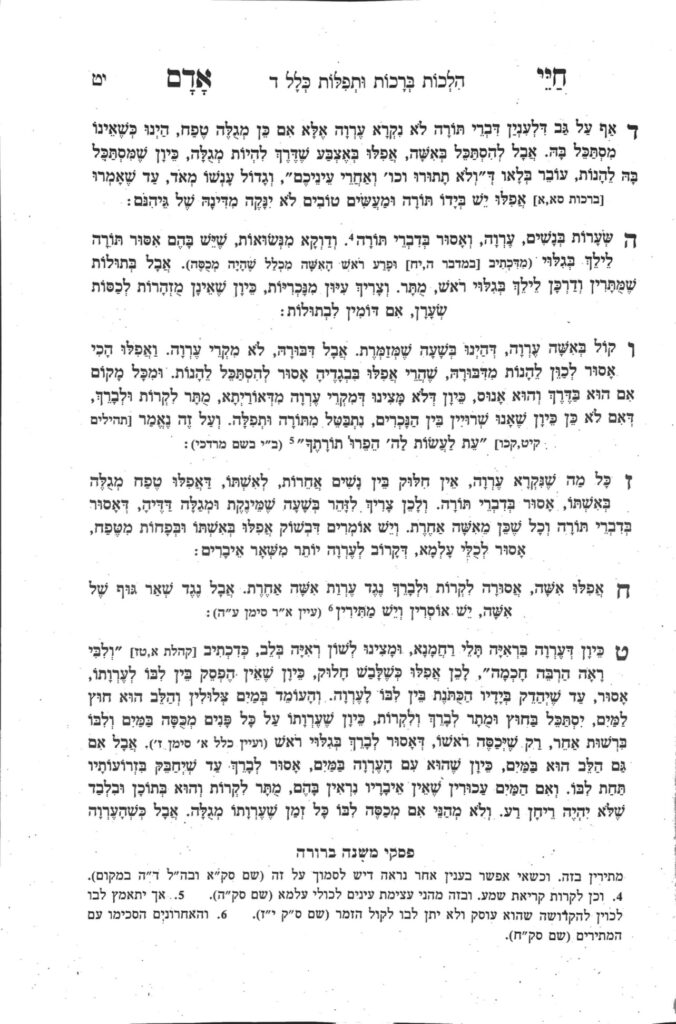We are beginning siman 9. Until now, we have discussed the concept of seeing ervah with one’s eyes. Today, the Chayei Adam will introduce the concept of a person’s body being exposed to ervah, even though they do not see it with their eyes.
The Chayei Adam writes that the Torah makes the concept of ervah dependent on reiyah, sight. However, we find that the Torah uses the term reiyah regarding the heart as well, as Shlomo Hamelech says in Koheles that my heart saw much wisdom (1:16). Therefore, Chazal extended the concept of ervah to the heart as well, in that it is assur miderabanan to recite devarim shebikedusha of one’s heart can “see” (i.e., is exposed) to ervah. This concept is known as libo roeh es haervah.
We have learned that if there is an ervah in the room, it is only sufficient for one to cover their eyes to avoid an ervah derabanan, but not to avoid an ervah deoraysa. The Chayei Adam explains that if one is wearing a long garment, even though their eyes cannot see the ervah, if there is nothing between one’s heart and one’s ervah, the heart “sees” the ervah, and it is assur to recite devarim shebikedusha. One must press the garment against their body in order to create a separation between the heart and the ervah. Nowadays, a belt or elastic undergarment fulfill this requirement. However, should one not be wearing underclothing which press against the body, they would need to press their hands tightly against their body in order to create this separation.
Similarly, the Chayei Adam writes that if one is standing in water, and their heart is above water, it is considered as though the heart is covered, so it is sufficient to address the issue of libo roeh es haervah. One would have to be careful not to look with their eyes at their ervah, but rather to look straight ahead. One could then recite tefillah or torah, but if they wish to recite a bracha they would have to cover their head.
Summary
The concept of libo roeh es haervah is that it is assur for the heart to be exposed directly to one’s ervah. One must create a separation between the heart and the ervah with a tight fitting garment, one’s hands pressed against the body, or with the body half of their body under water.



